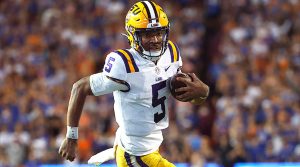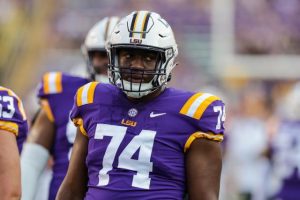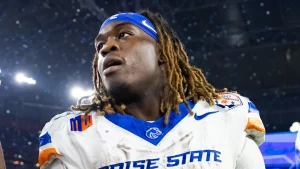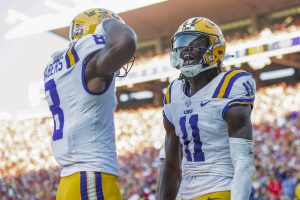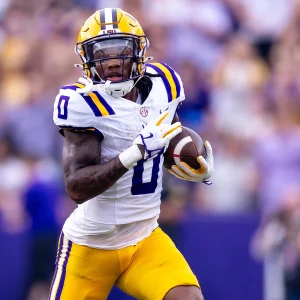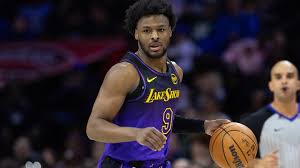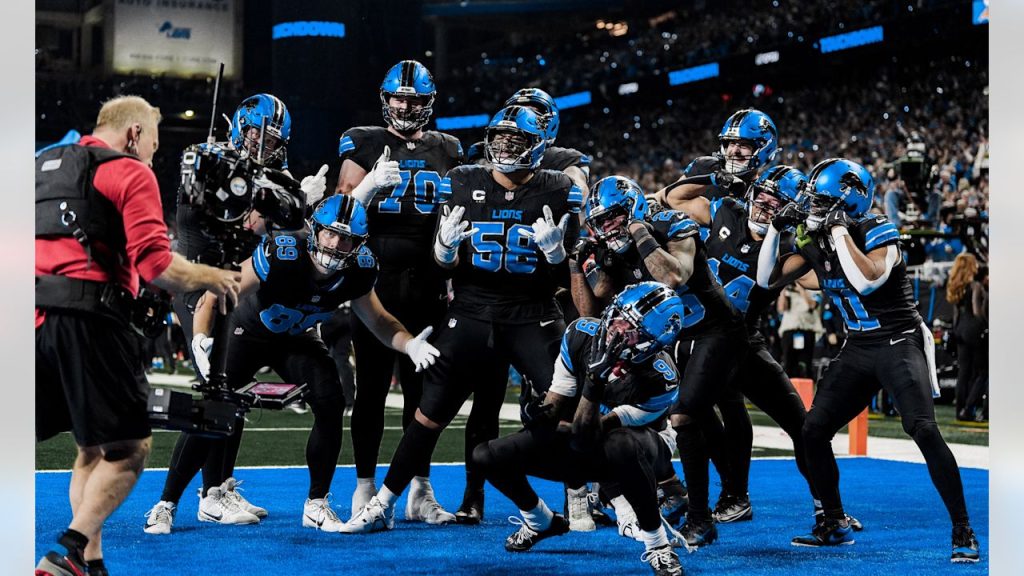
5 hardest questions for the Detroit Lions’ new coordinator
Introduction:
The Detroit Lions have gone through significant changes recently, including bringing in new coordinators to both the offensive and defensive sides of the ball. These coordinators will face unique challenges as they try to take the team to the next level. The pressure to succeed and adapt to the NFL’s dynamic nature creates a set of difficult, sometimes daunting questions. Here are five of the hardest questions that the Lions’ new coordinators—whether offensive or defensive—will have to answer.
1. How do you balance scheme innovation with the current roster’s strengths and weaknesses?
Offensive Coordinator (OC) Perspective: One of the most important tasks for a new offensive coordinator is to find a system that maximizes the strengths of the existing personnel. For the Lions, this means making the most out of quarterback Jared Goff’s skill set, as well as utilizing key playmakers like Amon-Ra St. Brown, and the backfield featuring David Montgomery and Jamaal Williams. While some offensive coordinators might want to impose a particular system, the question becomes: How do you blend your own vision with the roster’s abilities?
For example, Goff has been successful with a structured, rhythm-based offense—so how much do you lean into this style? Will you try to open things up with more motion and variety, or stick with a more traditional passing game? If the Lions’ running game is working well, how will you use that to set up play action and create explosive pass opportunities?
Defensive Coordinator (DC) Perspective: On the defensive side, the Lions have several young and talented players in their front seven, including edge rusher Aidan Hutchinson. The challenge here is how to design a defense that makes use of the current personnel while building a system that can still evolve over time. The Lions’ defense has struggled with consistency in recent seasons, particularly with stopping the run. Can a new defensive coordinator bring in innovative techniques to shore up this weakness without completely abandoning the basics that the current roster can handle?
2. How do you adapt the scheme to counter the strengths of the NFC North’s elite offenses?
Offensive Coordinator Perspective: The NFC North has some of the NFL’s toughest defenses, including those of the Chicago Bears, Green Bay Packers, and Minnesota Vikings. Each presents unique challenges. The Packers’ defense often has an aggressive front seven, while the Vikings’ defense can bend but not break, using a zone-heavy scheme. The key question here for the offensive coordinator is: How do you tailor your game plan to consistently move the ball against these divisional foes?
If you’re facing a defense like the Bears’ aggressive line or the Packers’ pass rush, do you lean into quicker passing plays or rely on the offensive line to establish dominance in the trenches? Should you game plan for balance, or focus on taking shots downfield to expose secondary weaknesses? These decisions will depend largely on the type of protection schemes and timing that Goff and the offensive line can execute well.
Defensive Coordinator Perspective: For the defensive coordinator, dealing with divisional foes is a different set of headaches. Each NFC North team can provide unique challenges. How do you defend against the Vikings’ Kirk Cousins, who thrives in the pocket, and Justin Jefferson, one of the league’s most dangerous wideouts? How do you neutralize Aaron Rodgers’ ability to break down defenses with his quick decision-making, or Justin Fields’ mobility and unpredictability with his legs?
The Lions’ defense, particularly their pass rush and secondary play, has been a question mark. How do you leverage Aidan Hutchinson’s talent and the rest of the pass rush to disrupt a quarterback’s rhythm? Will the defense be able to adapt to the specific strengths of each opponent while maintaining a consistent level of play?
3. How do you instill consistency and discipline in a young, developing roster?
Offensive Coordinator Perspective: The Lions have several young, developing stars on offense—like Goff (though not exactly a rookie), St. Brown, and other emerging talent. However, developing consistency in these players, especially with so much unpredictability at the NFL level, will be a huge challenge. Can you get Goff to play at his best for 16 games? Is St. Brown ready to be the No. 1 option in an offense, or is he more of a complementary piece?
The hardest question here is about getting the most out of younger players and maintaining a balanced offense. Developing chemistry between Goff and his receivers, and ensuring that the offensive line can create the necessary holes for the running game, will be key. The offensive coordinator must also focus on keeping the mental and physical aspects of the game sharp to avoid costly mistakes, penalties, or drops, which could derail momentum.
Defensive Coordinator Perspective: For the defense, a similar situation is happening with players like Hutchinson, who is still learning how to be an elite pass rusher at the NFL level, and other younger defenders who are adjusting to the professional game. Can the defense make strides in terms of being more disciplined against the run and passing game? Will the secondary improve enough to prevent blown coverages and crucial big plays?
A big question here will be how quickly the coordinator can instill a mindset of discipline—both in terms of technique and mental preparation. Young players often have trouble maintaining focus, especially in high-pressure situations. The defensive coordinator will need to teach these players how to keep their heads in the game, not give up the big plays, and become consistent in their assignments.
4. What is the identity you want to create for the Lions, and how do you maintain it throughout the season?
Offensive Coordinator Perspective: Every great offense has a certain identity. Some are smash-mouth, run-heavy offenses, while others are high-flying, pass-heavy units. For the Lions, finding the balance between utilizing the run game with Montgomery and establishing the passing game with Goff and St. Brown will be a major question for the new offensive coordinator. Do you want to be a run-first team that sets up play-action, or a more pass-heavy team that relies on rhythm and timing?
The Lions are a team that, historically, has struggled to find an identity. How do you ensure the team stays true to that identity week in and week out, regardless of injuries or tough matchups? If the offense begins to struggle, do you tweak the system or try to force a change that might hurt the team long-term?
Defensive Coordinator Perspective: Similarly, the defensive coordinator has to establish an identity for a defense that has been inconsistent for years. Will it be an aggressive, blitz-heavy unit that creates turnovers? Or will it be a more conservative group that focuses on stopping the run and preventing big plays? The defensive coordinator needs to ensure the defense plays with a clear mindset, despite the inevitable ebbs and flows of a long NFL season.
How do you maintain that identity, especially if the defense struggles against a particularly strong offensive team? If the Lions’ defense gives up 30 points in a game, how do you reset mentally and get back to playing sound football? The challenge is to avoid being reactive to each opponent, and instead develop a defensive identity that can hold up across the long season.
5. How do you manage the development of individual players while striving for team success?
Offensive Coordinator Perspective: In the NFL, players are often focused on individual statistics and progression, but the new coordinators need to manage how personal development fits into the team’s success. For example, how do you keep a star like St. Brown engaged and developing while maintaining offensive balance and moving the ball down the field? If Goff is struggling, do you protect him by reducing the game load, or do you keep pushing him to elevate his play?
A major challenge here will be balancing individual growth with team performance. Developing players like St. Brown, Goff, or the offensive line, while also focusing on building an offense that is competitive, will require flexibility and vision.
Defensive Coordinator Perspective: On the defense, how do you balance the development of younger players like Hutchinson while also aiming for immediate success? While Hutchinson might be a future star, how much responsibility should be put on his shoulders to perform early in his career, and how much should the coordinator manage his workload and expectations?
This question also involves player development over a long season, where fatigue and injuries may play a role. The defensive coordinator will need to ensure players are developing at a sustainable pace, especially when dealing with young defensive backs or linebackers who are learning on the job.
